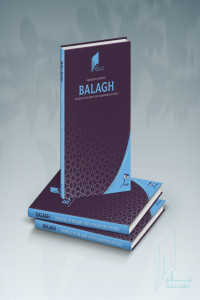Positive Social Impact of Islamic Social Finance During Covid-19: Case Study of Malaysia
Positive Social Impact of Islamic Social Finance During Covid-19: Case Study of Malaysia
Abstract: The global pandemic of COVID-19 has affected many aspects of human lives all over the world. Changes in many policies in the economic, political, health, social and education system can be observed including in Malaysia. The practice of Islamic social finance (ISF) tools such as sadaqah (charity), zakat (alms) and microfinance in many Islamic financial institutions is crucial to help improve the affected society’s quality of living and help them overcome any financial challenges in this difficult time. In response to this pandemic, the objective of this study is to explore the practice of ISF in three Islamic banks which are Bank Islam Malaysia Berhad (BIMB), CIMB Islamic Bank Berhad (CIMB Islamic) and Agrobank along with its positive impacts on the society during this outbreak. This study also aims to figure out which bank is more effective in their ISF practice in delivering positive social impact. Depending on analytical and quantitative investigation, this paper specifically applies the comparative analysis method by reviewing and analysing the relevant data using the Value-Based Intermediation (VBI) strategy indicator of community empowerment. The result of this study reveals that in general, BIMB is the most efficient institution in delivering a positive impact to the society through its ISF practices, followed by Agrobank and CIMB Islamic.
Keywords:
Islamic social finance, COVID-19, BIMB, CIMB Islamic Agrobank, social impact.,
___
- Abdulkareem, I. A., Mahmud, M. S., Elaigwu, M., & Abdulganiyy, A. (2021). Mitigating the Effect of Covid-19 on the Society Through the Islamic Social Finance. The Journal of Management Theory and Practice (JMTP), 2(1), 56–61.
- Agrobank. (2021). COVID-19 : Bantuan Kewangan & Sokongan oleh Agrobank. Bank Pertanian Malaysia Berhad (Agrobank). https://www.agrobank.com.my/my/home/covid-19/agrobank-relief-measures-and-support/#new_tab
- Ainol-Basirah, A. W., & Siti-Nabiha, A. K. (2020). The Roled of Islamic Social Finance in the Era of Post-COVID-19: Possible Prospects of Waqf Institutions for Economic Revival. International Journal of Industrial Management (IJIM), 7(1), 1–8. https://doi.org/10.15282/ijim.7.0.2020.5747
- Anwar, M. A. (2014). Undang-undang Pentadbiran Zakat Pada Zaman Awal Islam. International Conference on Masjid, Zakat and Waqf (IMAF 2014), 124–139.
- Azman, S. M. M., & Ali, E. R. A. E. (2019). Islamic Social Finance and The Imperative For Social Impact Measurement. Al-Shajarah: Journal of Islamic Thought and Civilization of the International Islamic University Malaysia (ISTAC IIUM), 43–68.
- BIMB. (2021). COVID-19 : Support and Assistance. Bank Islam. https://www.bankislam.com/corporate-info/covid-19-support-and-assistance/
- BNM. (2018). Value-based Intermediation: Strengthening the Roles and Impact of Islamic Finance. In Strategy Paper on VBI.
- https://www.bnm.gov.my/documents/20124/761682/Strategy+Paper+on+VBI.pdf/b299fc38-0728-eca6-40ee-023fc584265e?t=1581907679482
- CDC. (2020). The Centre for Disease Control and Prevention (CDC). About COVID-19. https://www.cdc.gov/coronavirus/2019-ncov/cdcresponse/about-COVID-19.html
- CIMB Islamic. (2021). COVID-19 Relief Measures and Support. CIMB Bank Berhad. https://www.cimb.com.my/en/business/help-and-support/covid-19-support.html
- COMCEC. (2020). Improving Shariah Governance Framework in Islamic Finance. 1–60. http://www.comcec.org/en/wp-content/uploads/2020/09/1-1.pdf
- Başlangıç: 2021
- Yayıncı: Karabük Üniversitesi
Sayıdaki Diğer Makaleler
Hakim Ebrahim Abdul Jabbar AL-SHAMİRİ
Islamic Insurance and Takaful Insurance Models
Murat ŞİMŞEK, Hatice Kübra PEKKIRBIZLI
Positive Social Impact of Islamic Social Finance During Covid-19: Case Study of Malaysia
Nur Shasha Dilla BİNTİ MOHD, Tawfik AZRAK
Post-COVID 19 Financial Awakening and Opportunities for Accelerating Sustainability
مقومات الاقتصاد الاسلامي في زمن تحديات كوفيد 91 كورونا
